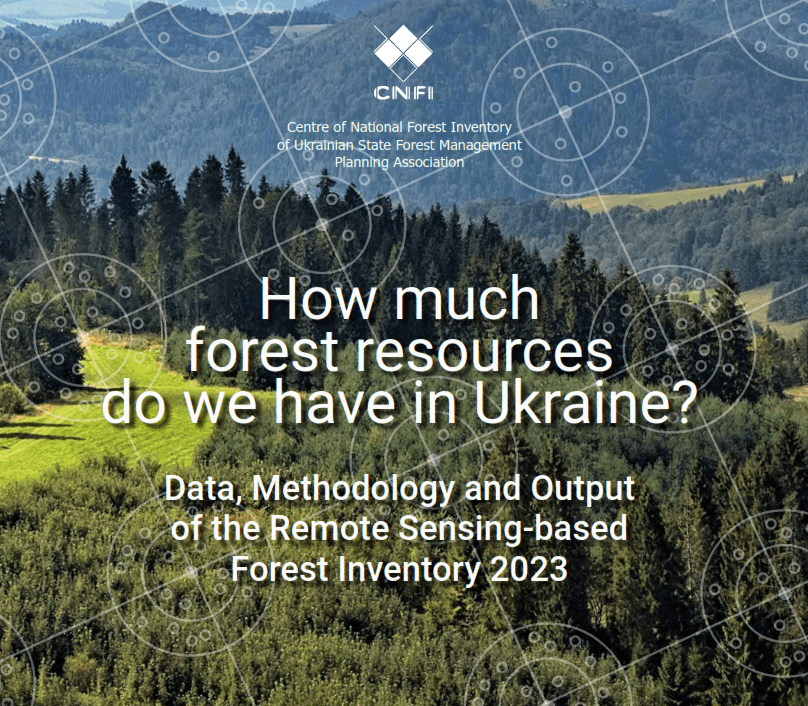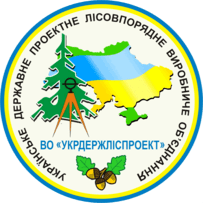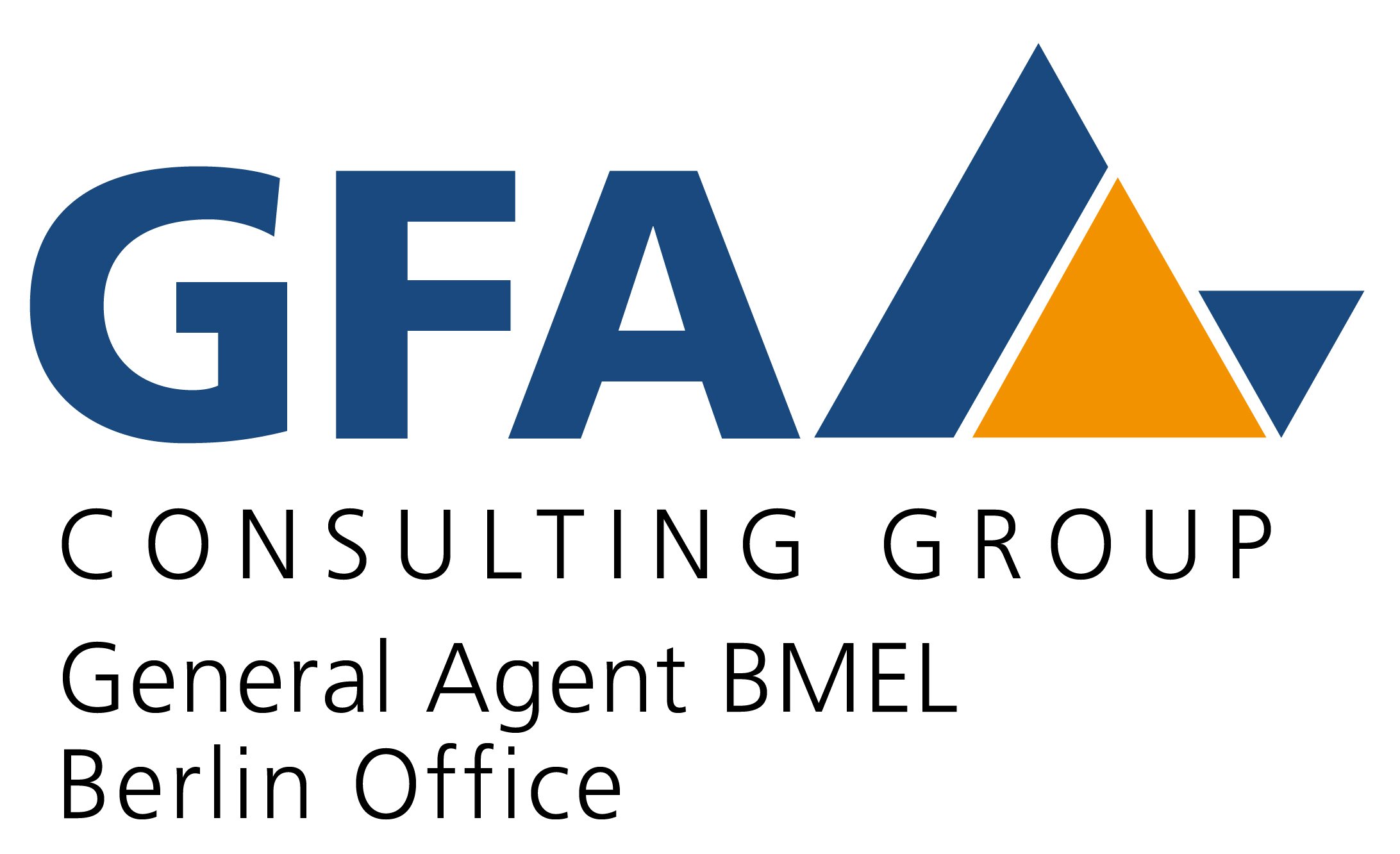Knowledge about extent and structure of forest resources of Ukraine is essential for policy making in many areas of state administration, such as forestry, timber processing, employment, biodiversity, climate change etc.
Against this background, the Sustainable Forestry Implementation (SFI) Project organized on 26.04.2024 a public event to present the outcomes of a recently implemented remote-sensing based forest inventory of all Ukrainian forests, called RS-Inventory. The project is supported by the Federal Ministry for Food and Agriculture of Germany. It presents a joint venture of Ukrainian and German experts, who used international experiences. Nearly 100 participants, representatives of state administration, science, business, NGO´s and international organization as well as representatives of mass media followed the invitation.
Mr. Anatolіy Borsuk, Head of the Division for the protection and renewal of forest resources of the Ministry of Environmental Protection and Natural Resources (MEPR) underlined in his opening the importance of comprehensive environmentally related information such as carbon storage and nature protection. Forestry should be developed sustainably, considering the various functions of forests.
Ihor Budzіnskyi, Head of Forestry department of State Forest Resource Agency (SFRA), pointed to the fact that the ongoing National Forest Inventory (NFI) is hampered by Russian war, inaccessibility of occupied territories as well as limited state financing. The RS-Inventory has bridged this deficit and provides now reliable information with an acceptable error about forest area, growing stock and many other parameters, important for strategic forest policy making.
Viktor Melnychenko, General Director of State Forest Management Planning Association (SFMPA), presented an overview on the way of Ukraine European approaches towards National Forest Inventory. He underlined a significant risk that NFI is not adequately financed and thus forest resources are not sufficiently monitored.
Afterwards, Heino Polley, SFI-Project expert, who gained for more than 25 years experiences in the German National Forest Inventory (Bundeswaldinventur), presented ten “Key factors for a successful National Forest Inventory” and analyzed where Ukraine stands with regard to the implementation of these factors. “With regard to NFI much is achieved and Ukraine is on the right direction. But the process must now be continued to come to European level,” said Polley.
Viktor Myroniuk, Professor, Forest Mensuration and Forest Management Department, National University of Life and Environmental Sciences of Ukraine gave a comprehensive overview on input data, methodology and outcomes of the RS-Inventory. The RS-Inventory of all forests of Ukraine revealed a total forest area of 11.2 million ha, respectively 18.6 % of total area of Ukraine, out of which 1.7 million ha have been temporally occupied by Russia or affected during the war. Total growing stock amounts to 2.8 billion m3. According to the outcomes of the RS-Inventory the average growing stock amounts to 251 m3/ha, thus forest area and growing stock are higher than expected from earlier studies. The total volume of carbon accumulated in Ukrainian forests, including roots, branches, leaves and trunks was assessed around 944 million t or 3.5 billion t CO2-eq. – which corresponds to about 10 times the volume of annual GHG emissions of Ukraine. For more details please kindly refer to the CNFI website.
Finaly, Volker Sasse, SFI-Project Leader, presented a booklet on the RS-Inventory outcomes, which was distributed later to all participants in presence. The booklet can be downloaded from SFI website. Sasse then talked about prospects and mentioned among others a further structuring RS-Inventory outputs by ownership respectively users and levels of protection. Retrospective RS-Inventory analysis can reveal changes in forest cover and structural forest attributes (e.g. growing stock) as a base for modelling growth and sustainable harvesting potentials. “More impetus should be given to the inventory of environmentally relevant forest attributes”, said Sasse.
During following panel discussion, moderated by Pavlo Kravets, SFI-Project expert, further improvements of methodology and comparability of the findings, in particular, with the state forest statistics, have been addressed. Representatives of the state forest administration noted the high potential of application of RS-inventory outputs during policy decision making, as RS-Inventory opens up e.g. opportunities for assessing the losses due to Russian aggression. It gives also momentum to the management of «unaccounted» self-afforested forests.
Another proposal focused on the setting up of a trust fund for the National Forest Inventory, both at the expense of the state budget and international donors. Particular attention was drawn to the required state support, in order to ensure consistent development of the terrestrial National Forest Inventory. Finally, it was stated that NFI and particularly RS-Inventory provides European integration aspirations for the Ukrainian forest sector. In front of this background, it was emphasized that despite the challenges posed by the war and the budgetary crisis, the state support of Center of National Forest Inventory of SFMPA should continue.
Presentation Ukraine on the way to European approaches towards National Forest Inventory
Presentation Key factors for a successful National Forest Inventory
Presentation Reference data, methodology and RS-Inventory results
Presentation Prospects of using RS-Inventory


